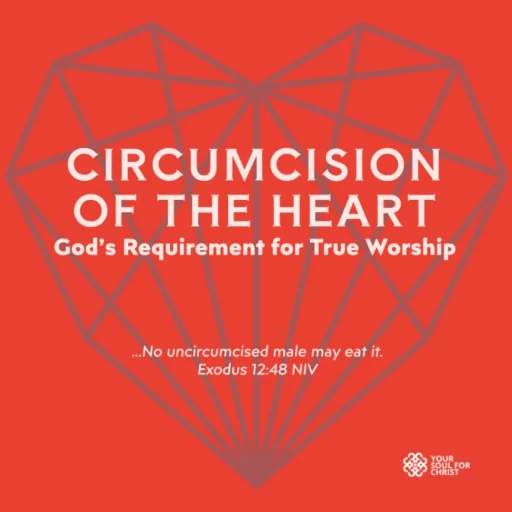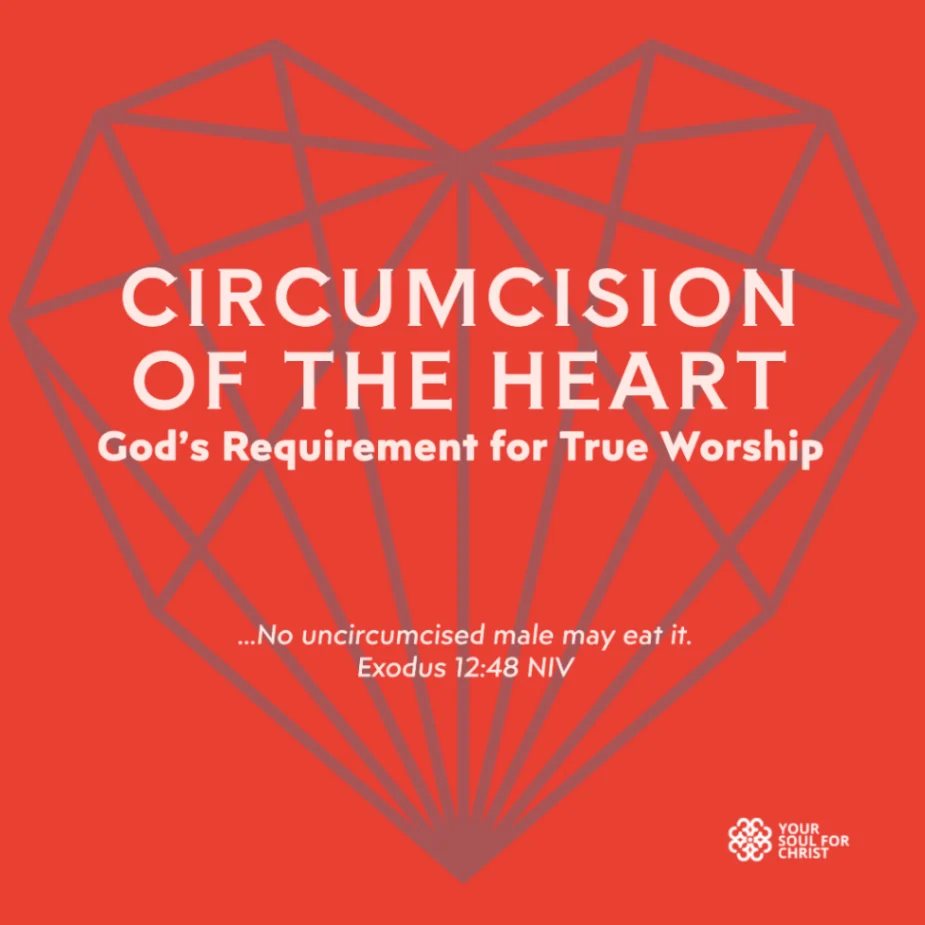“A foreigner residing among you who wants to celebrate the Lord’s Passover must have all the males in his household circumcised; then he may take part like one born in the land. No uncircumcised male may eat it.”
Exodus 12:48 NIV
As I reflected on God’s instructions in Exodus 12 regarding the Passover, I recognised the sacredness of this divine feast. To participate, one had to do more than simply show up—it required circumcision. It is a physical sign of covenant and consecration. This condition revealed God’s call to holiness for all who wished to draw near. The Passover was more than a meal; it was an act of worship that demanded purity, symbolised by this significant requirement.
Interestingly, God did not restrict participation in the Passover to a specific ethnic group. His invitation was open to all—Israelites, foreigners dwelling among them, and even slaves—provided they met one vital condition: circumcision. This physical act was a sign of covenant, a symbol of consecration to the Lord. It was God’s way of setting apart those who belonged to Him.
Exodus 12:44 and 48–49 reveal that foreigners and slaves could share in the Passover feast if they had circumcised every male in their household. This requirement underscored God’s desire for inclusion, but on His terms. Holiness was non-negotiable. God’s covenant was open, but it came with a condition that revealed the seriousness of approaching Him.
This Old Testament instruction mirrors a New Testament truth that is just as significant today. Under the New Covenant, the requirement is no longer physical circumcision but spiritual circumcision—a transformation of the heart. As written in Ezekiel 36:26, God promises: “I will give you a new heart and put a new spirit in you; I will remove from you your heart of stone and give you a heart of flesh.”
This spiritual circumcision involves the removal of the sinful nature and a surrender to the lordship of Christ. It is not an outward ritual but an inward renewal. Just as the Israelites could not partake of the Passover without circumcision, believers today cannot truly partake in the life and service of God without heart transformation.
You may attend church faithfully, serve in leadership, or be active in ministry, yet still remain spiritually uncircumcised. Proximity to God’s people or involvement in religious activity does not equal transformation. Meanwhile, God does not accept worship that comes from an uncircumcised heart. As it was unholy for an uncircumcised person to eat the Passover, so also worship offered from an uncircumcised heart is unacceptable to the Lord.
In Christ, this call to transformation is extended to all, not just to men, but to everyone who desires to walk in covenant with God. Spiritual circumcision is now the mark of true discipleship. It is the only path to living a life that pleases God and offering worship that He receives.
So I ask: Have you been circumcised—not in the flesh, but in your heart? Have you allowed God to remove the hardness of sin and replace it with a tender heart that responds to His voice? True worship flows from a heart that has been cleansed, yielded, and renewed by the Spirit.
Living It Out
Ask God to search your heart and reveal any areas still untouched by His transforming grace. Invite Him to circumcise your heart—cutting away pride, stubbornness, bitterness, or hidden sin. Don’t settle for external religion. Pursue righteousness. Seek renewal from the inside out. Only then can you offer worship that is pleasing and acceptable to Him.

